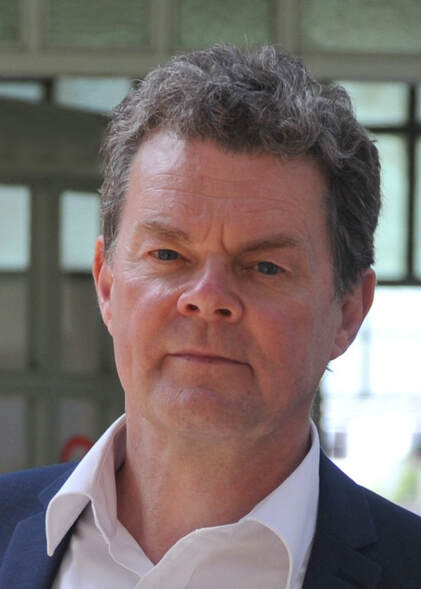- Home page
- Contact
- Images of Flight of Destiny
- Francis H Powell interviewed
- anthology for Palestine
-
meet the poets of Together Behind Four Walls
-
Andrew Tyler
>
- Interview with Seadeta Osmani
- Interview with Harry Weiss-Jones.
- interview with Cynthia Vespia
- Interview with Josiane Vincent
- Interview with Laura Mucha
- Interview with Chris White
- Interview with Carmina Masoliver
- Interview with Crysse Morrison
- Interview with Alan Durant
- Interview with B the Poet
- Interview with Arti RAI
- Interview with Neal Zetter
- Interview with Andrena Zawinski
- Interview with Trevor Millum
- Interview with Alison Brackenbury
- Interview with Toby Campion US
- Interview with Hadley James Hoyles
- Interview with Leela Soma
- Interview with Bernard Young
- Interview with Coral Rumble
- Interview with Sue Hardy -Dawson
- Interview with Dom Conlon
- Interview with D.L. Lang
- Interview with AF Harrold
- Interview with Monique Tell
- Interview with Stewart Taylor
- Interview with Cliff Forshaw
- Interview with Professor Elemental
- Interview with Marcus Christopherson
- Interview with Stephanie Davidson
- Interview with Brook Fischer
- Interview with Rita Rana
- Interview with Rhian Edwards
- Interview with Josh Louis Lingg
- Interview with Nina Zivancevic
- Interview with Armand Ruhlman
- Interview with Christine De Luca
- Interview with Hélène Argo
- Interview with Giselle Marks
- Interview with Thomas Stockley
- Interview with Giselle Marks
- Interview with January L'Angelle
- Interview with Martin Figura
- Interview with Dennis Copelan
- Interview with Laura Zuwa
- Interview with Iam Thandi
- Interview with Gail Meath
- Interview with Alun Robert
- Scottish Poets
- Jonnie Dalton
- Welsh writers
- Okorie Harrison
- interview with Meo
- interview with Mark Blickley
- interview with Christopher T. Dabrowski
- Ray Clark
- Derek Thompson
- Lynne Reid Banks
- Paula Claire
-
Andrew Tyler
>
-
Francis H Powell interviews with other authors
- Interview with J. C. Michael
- interview with Gavin Hill
- Interview with Morris E Graham
- Interview with Wally Runnels
- interview with John Nicholl
- interview with Rob Same
- interview with Elizabeth Oberbrunner
- Interview with Michael Wilkins
- Interview with Karina Kantas
- Interview with Justin Bienvenue
- interview with James Hershey Jr
- Interview with Brian Parker
- interview with Roma Gray
- interview with Rebecca Reid
- interview with Samual Friedman
- interview with Cynthia Vespia
- Mark Anthony Tierno
- Spotlight >
- interview with Jean Lowe Carlson
- download interview questions for authors
- Book Reviews
- Tiffany Alpen, Kindred (The Birthrite Series, #2)
- Together Behind Four Walls
- The Fish King and the Two Wise Ghosts
TTell everybody a little about yourself
I’m a poet and painter now living in Hull. My collections include Trans (The Collective Press, 2006), Vandemonian (Arc, 2013), Pilgrim Tongues (Wrecking Ball, 2015) and Satyr (Shoestring, 2017). I’ve been a Royal Literary Fund Fellow at York University, twice a Hawthornden Writing Fellow, held residences in California, France, Kyrgizstan, Romania, and Tasmania and read at various literary events in Brussels, Palo Alto, Dublin, Sydney, Iceland, Romania and Nicaragua. For more details, poems and paintings, please see my website. http://www.cliff-forshaw.co.uk/
Was your creativity affected in anyway during the lockdown? Did being lockdown make you feel inspired or deflated?
I was busy at first working on paintings and a collection of translations, but I found things slowed and the last few weeks haven’t been so productive.
Was it therapeutic doing creative work during lockdown?
At first yes, but I found it easier to work on the painting than write. Then, even that got harder and I lost a lot of time to box-sets. One thing I really missed was the Life Class.
What was the main thinking behind your poem submitted to Together Behind Four Walls ?
I remembered a scene in the film Fellini’s Roma which shows excavation for an extension to the Rome metro system. The construction crew break through a wall and discover ancient murals. These paintings then evaporate before our eyes in the modern air of the city. These cloistered rooms seemed somehow in timeless lockdown until disturbed by urban development. Looking at the scene again, I realised that what appeared a sort of fortuitous documentary moment had been carefully staged. We see the people in the murals from the inside of their “closed” rooms. The camera shows the construction breaking through the wall from the perspective of the “shielding” Roman villa. I was interested in the ideas of perspective, and the tricks memory plays, as well as the contrast between the tranquillity of the undiscovered villa and the violence of the busy modern world crashing through. I wanted the final images to somehow combine, or shift between, technology and myth.
What inspires most of your poems,
I’ve spent a lot of time travelling and living abroad, and other cultures, history and the natural world have been a starting point for many poems. A residency in Tasmania resulted in a collection Vandemonian, which explored Tasmanian history, both natural and unnatural.
I also do quite a bit of translation. This is often very loose: perversions and versions of poems from French, German or Spanish. These may be more like variations on themes, or contemporary responses to work from a particular period and culture. Sometimes I invent poets.
Do you have any favourite poems, from all the poems you have written?
Here’s one from Vandemonian. In Hobart, I saw a loop of film showing the last Tasmanian tiger.
Loop
62 seconds of the extinct Thylacine on film.
Within the box, it growls, it twists,
scowls through its repertoire of tricks,
ignores the camera – or gurns up close, turns
again, to flop, to gnaw that paw-trapped bone.
It paces out its trap of light; one hundred reps
while hindquarters zither bars of sun;
claws cage’s mesh, hangs stretched
as if to take the measure of itself.
You saw. You see. And what we’ve got is what was shot:
short clips, fragments caught and stitched
together in a loop of black and white.
Nine lives? Not quite. It’s down. It’s out.
It’s on its feet and born again. Like a repetition
compulsion, like… like reincarnated light.
The film clip of the Tasmanian tiger, together with me reading the poem is available on the Arc website: https://www.arcpublications.co.uk/books/cliff-forshaw-vandemonian-490
ABC, Australian National Radio did a programme on the Tasmanian tiger which feature some of my poems: http://www.abc.net.au/radionational/programs/hindsight/4935464
Do you remember the first poem you ever wrote or one of the first?
My first poems were pretty awful. I’m very happy to forget them. They got a lot better when I started reading a lot more, and decided form was more important than trying to express myself. I set myself the task of learning technique. I think the first successful poems came about after I was in the last year of a degree in English and European Lit, and had started to try to translate some French poems and make them work in English.
Do you ever think of poems before going to sleep or just after waking up?
I often get up, make a cup of coffee, then work on poems in bed before really committing to the day. But it’s usually just odd scraps and phrases, to be kicked about more seriously later.
Do you hand write poems or go directly on to your computer?
Poems go through various stages. I usually note down ideas or odd phrases in a little notebook I carry round. Every so often I transfer these, still by hand, to a bigger pad. At this point I might write in capitals (a sort of half-way house to print) as I work on the form: stanzas, rhymes. Then if I have some sense of the overall shape I put it into the laptop and get a first rough print-out. A poem will probably go through a dozen, maybe twenty print-outs, as I make changes.
Do you ever give up on poems you have started?
Yes, there’s a fairly high pile in the wastebasket. Often what seems like a poem is just a part of something else. I might salvage a line or try to work a couple of poem ideas together. This may be years after the original attempts. But, still, there are lots of ideas that don’t make the cut.
Do you do any other creative activities?
Painting is my main other activity. I have also illustrated my poems with drawings and engravings and made three short films.
Do you only focus on poetry or do you also write prose?
I have written fiction: a couple of unpublished novels. I did once work on a novel for 10 years and had an agent, but it never got published and I lost heart. I started another novel a few years ago and occasionally toy with it, but there always seems a sequence of poems I need to finish first. But maybe the novel is marinading still.
Do your poems ever have strong messages?
I not a great fan of messages. Was it Ezra Pound who said if you have a message, send a telegram. Today, a text with or without emoticons, would do. “Message” seems too straightforward. Propaganda, government health warnings and advertising have messages. Poems play with themes, ideas, raise questions more than provide answers or basic information.
How would you describe the tone of your poems?
They vary a lot. I do write a lot of satire, but my main tone I think could be described as dark, but lyrical.
If you had to write a poem about yourself, how would it start?
I tend not to write poems about myself, or at least not obviously with a recognisable “me” in them. Je est un autre, Rimbaud said, “I is another”. I like to use personae, often from other countries or historical periods. Recently, I’ve been working o a sequence set in Central Asia, and the personae have included Russian and American Cold Warriors, Kazakstan tribesmen, Greek soldiers left behind in outposts of Alexander the Great’s empire. Vandemonian included sequences featuring Tasmanian voices: explorers, settlers, deported convicts and Queen Trucanini, the last of the full-blood Tasmanian aboriginals. A good deal of what I do moves in and out of translation, so my poems often echo with historical voices. My sequence Satyr, imagined John Marston’s Elizabethan Malcontent coming back from the grave to apprise the contemporary world.
The most personal thing I have written was a series of elegies I started when my mother died. But if I’m in it it’s really only as reflected in the mirror of someone else. What there is of me in the poems is language, not incident or biographical detail.


SUPPORT OUR KICKSTARTER CAMPAIGN FOR THE BOOK
www.kickstarter.com/projects/betweenfourwalls/together-behind-four-walls-an-anthology?fbclid=IwAR0DcnZFf-ubr4hNo4K-7FsVXUXxcoYFzC7bjQsgwsdW6QfvO3Hao__hnQE

